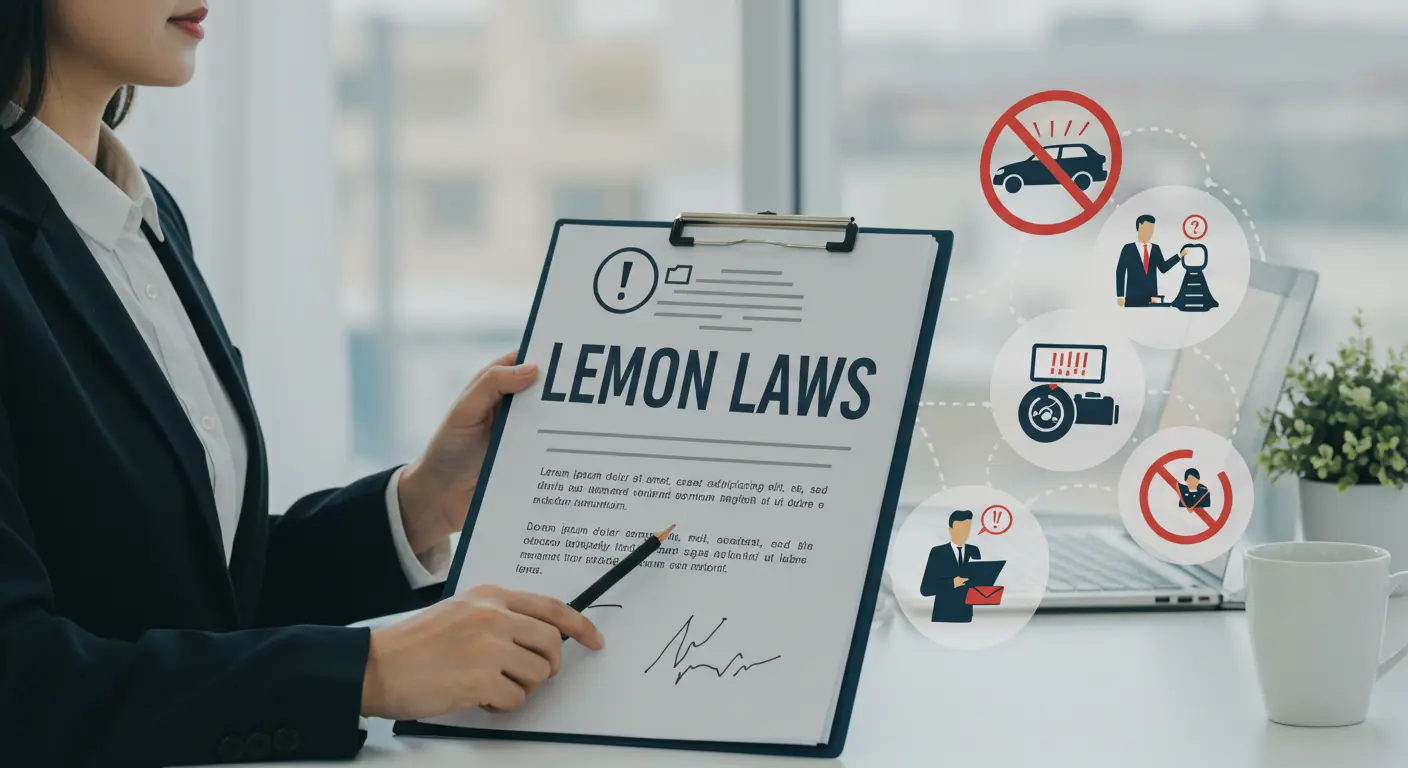Lemon laws are a pivotal line of defense for those venturing into vehicle ownership or leases. These laws exist to shield consumers from defective vehicles that could undermine safety, devalue the purchase, or curtail usage. Navigating this landscape can be complex, especially if you’re new to understanding consumer rights in the automotive world. When faced with such challenges, consulting a lemon law attorney in Minnesota can offer customized guidance to address these problems and ensure the law is in your favor.
The essence of lemon laws lies in their protection against inheriting manufacturing blunders. The manufacturer is held accountable if a vehicle fails to uphold anticipated performance and quality standards. This empowerment of the buyer through clear recourse procedures prevents them from bearing the undue burden of a flawed product. To fully grasp the importance of these protections, it’s essential to dive deeper into these statutes and understand how they operate.
What Are Lemon Laws?
Lemon laws are vital consumer protection measures designed to address the recurring issue of defective vehicles and other products that fail to meet expected quality and performance standards. These laws ensure that when a consumer purchases a car plagued by significant, unrepairable issues despite multiple attempts at fixing them, they are not left without options. Instead, lemon laws provide the legal foundation for seeking a refund, a vehicle replacement, or appropriate compensation. As a safeguard, they reinforce the principle of fairness and hold manufacturers accountable for their products. According to the Federal Trade Commission, such protections promote transparency and build consumer trust in the marketplace. Ultimately, lemon laws embody the belief that consumers deserve reliable goods, especially when making significant financial new business investments like purchasing a car.
How Lemon Laws Protect Consumers
These regulations ensure financial protection by holding manufacturers accountable for persistent issues. Lemon laws can also empower consumers with specific rights, allowing them to demand appropriate actions against substandard vehicles. This legal framework reduces the risk of consumers incurring additional expenses due to unresolved faults. Organizations such as the National Highway Traffic Safety Administration further improve safety and standard compliance by ensuring strict criteria are followed during car production to prevent such flaws. Knowing these aspects can help consumers feel secure about making significant vehicle investments.
The requirements for a car to be considered a lemon
It’s imperative to understand that not every minor defect qualifies a vehicle as a lemon. Specific conditions must be met for a claim to be valid:
- The defect must significantly impair the car’s function, safety, or value.
- There must be multiple attempts to repair the issue, all unsuccessful.
- The vehicle should have been out of service for a substantial period, generally over 30 days.
Recognizing these criteria ensures that consumers do not jump to conclusions when faced with minor issues. Understanding the depth of the problem is crucial before pursuing a lemon law claim.
Real-Life Examples of Lemon Law Cases
Consider the journey of consumers through notable lemon law cases. Stories about defective airbags or persistent engine problems highlight the essential nature of these laws. These real-life situations emphasize the necessity of having clear legal pathways to prevent interminable financial losses or unsafe driving conditions wrongful death lawyer. They serve as a sobering reminder of the system’s checks and balances, ensuring manufacturer accountability and consumer safety. Learning from others’ experiences can profoundly inform future vehicle purchasing decisions.
Tips for Navigating the Claims Process
Admitting a lemon law claim with the appropriate strategy can be complicated but doable. Here are some tips:
- Meticulously document every detail: Maintain comprehensive records of repair attempts, dealer interactions, and manufacturer communications. This documentation is your most potent tool in substantiating the claim.
- Consult legal expertise: Enlisting an attorney well-versed in lemon law can provide guidance and increase the claim’s chances of success. The attorney can help interpret legal jargon and navigate complex rights and remedies.
Preparation and organization are key to successfully leveraging these laws to your advantage. Federal vs. State Lemon Laws
Understanding the distinctions between federal and state lemon laws is crucial, as each offers differing levels of protection. While the federal Magnuson-Moss Warranty Act is a nationwide backbone for warranty protection, individual states have unique laws that may provide additional or varied remedies. Familiarizing oneself with these intricacies ensures you are fully protected regardless of where the vehicle was purchased or serviced.
Frequently Asked Questions
- What types of vehicles are covered? Coverage often includes new cars, but some state legislations extend these protections to used vehicles.
- How long does it take to file a claim? State-specific statutes of limitations apply, underscoring the urgency of addressing vehicle defects swiftly.
- Are used cars covered under lemon laws? Coverage for used vehicles varies, with some states offering limited or complete lemon law protection, demanding careful consideration during such purchases.
Additional Resources on Consumer Protection
To further your understanding of consumer rights, consider exploring the resources available at Consumer Reports. This platform provides extensive vehicle reviews, consumer feedback, and testing results to guide informed car-buying decisions. It can be invaluable in evaluating potential purchases and mitigating the risk of ending up with a lemon.


















